Phoenix canariensis
Canary Island Date Palm
From £121.95 £112.35
The Canary Island Date Palm is a ubiquitous sight in warm temperate to tropical places worldwide, and can bring that same tropical atmosphere to any garden.
Phoenix canariensis’ arching feathery leaves are an eye-catching sight, no matter the size of the palm. As the palm grow its iconic trunk will slowly develop, making for an incredibly striking specimen.
FREE DELIVERY FOR ONLINE ORDERS*
*(parcel orders over £60.00 and pallet deliveries over £350.00)
Order today for shipping on Monday 29th July.
Plant Biography
Endemic to the Canary Islands, the Pygmy date palm lives across all seven of the individual islands in a range of habitats, from humid areas just below cloud forest, to semi-arid areas, with the largest population being on La Gomera island.
However, you may be more familiar with its use across the world in warm temperate regions as a street tree. In many of these locations the leaflets are used to create woven products, including crosses for Palm Sunday celebrations.
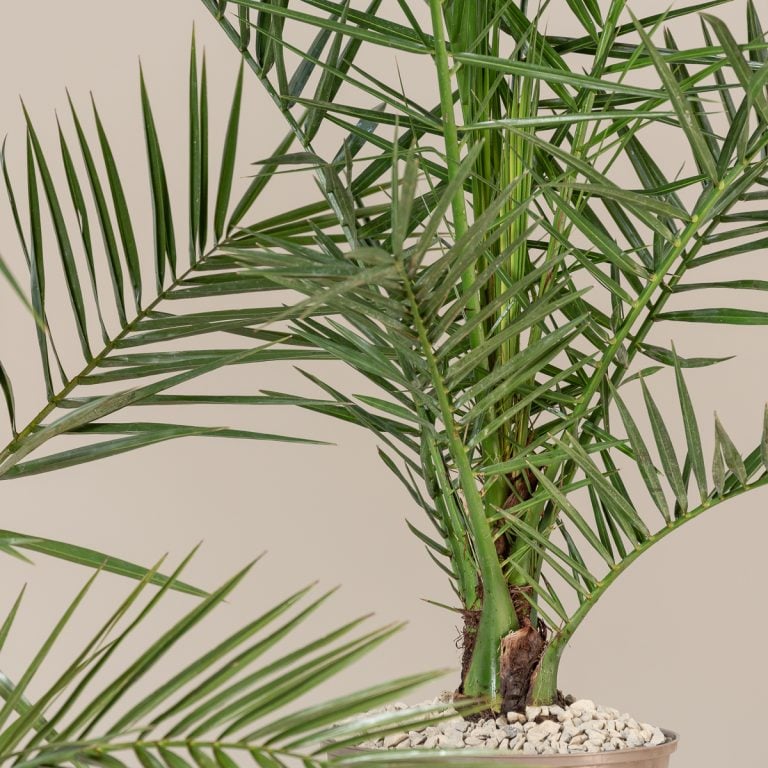
Expert Tip
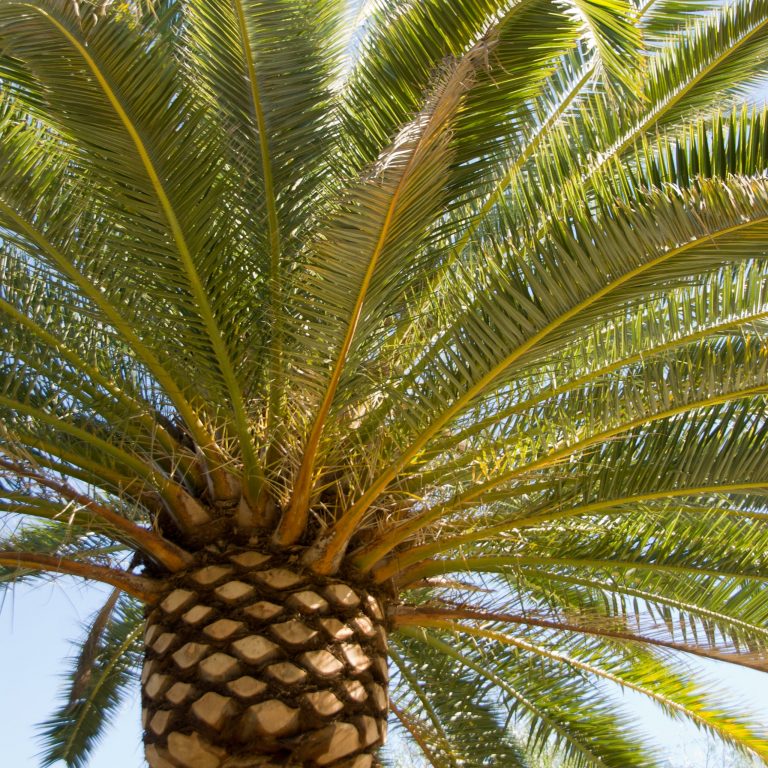
Phoenix Palm Pruners
Phoenix canariensis is renowned for its thick, columnar grey-brown trunk with distinctive diamond shaped leaf base scars which form as the crown of arching palmate leaves die and grow higher.
Specialist palm pruners, especially in locations where it is commonly grown, take immense pride in ornamentally trimming the fronds into these beautiful forms.
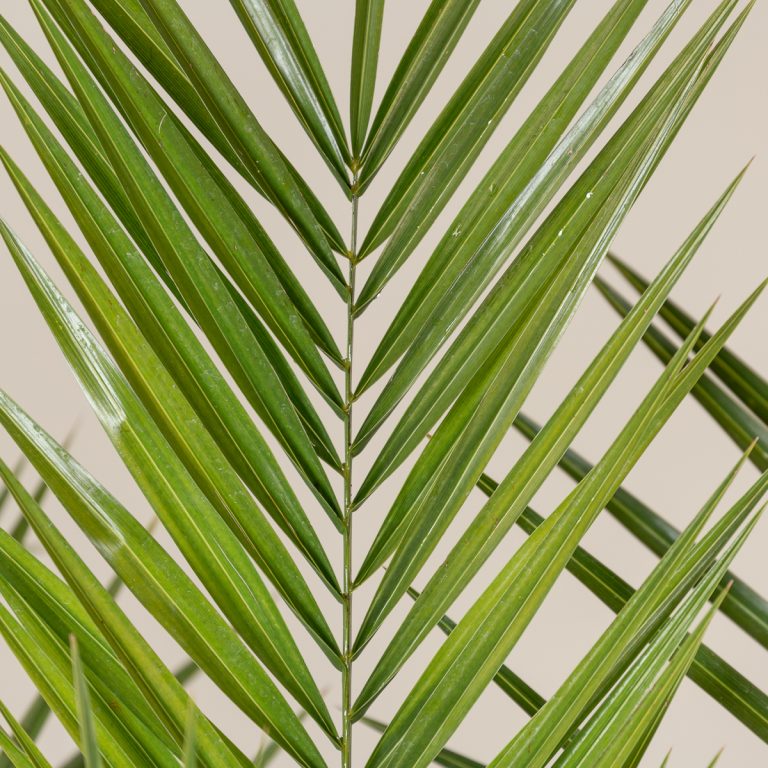
Care & Size Guidance
Phoenix canariensis is hardy to -8C, or lower when it’s dry, and is particularly resistant to drought and salty winds, making it a perfect candidate for the south coast of the UK.
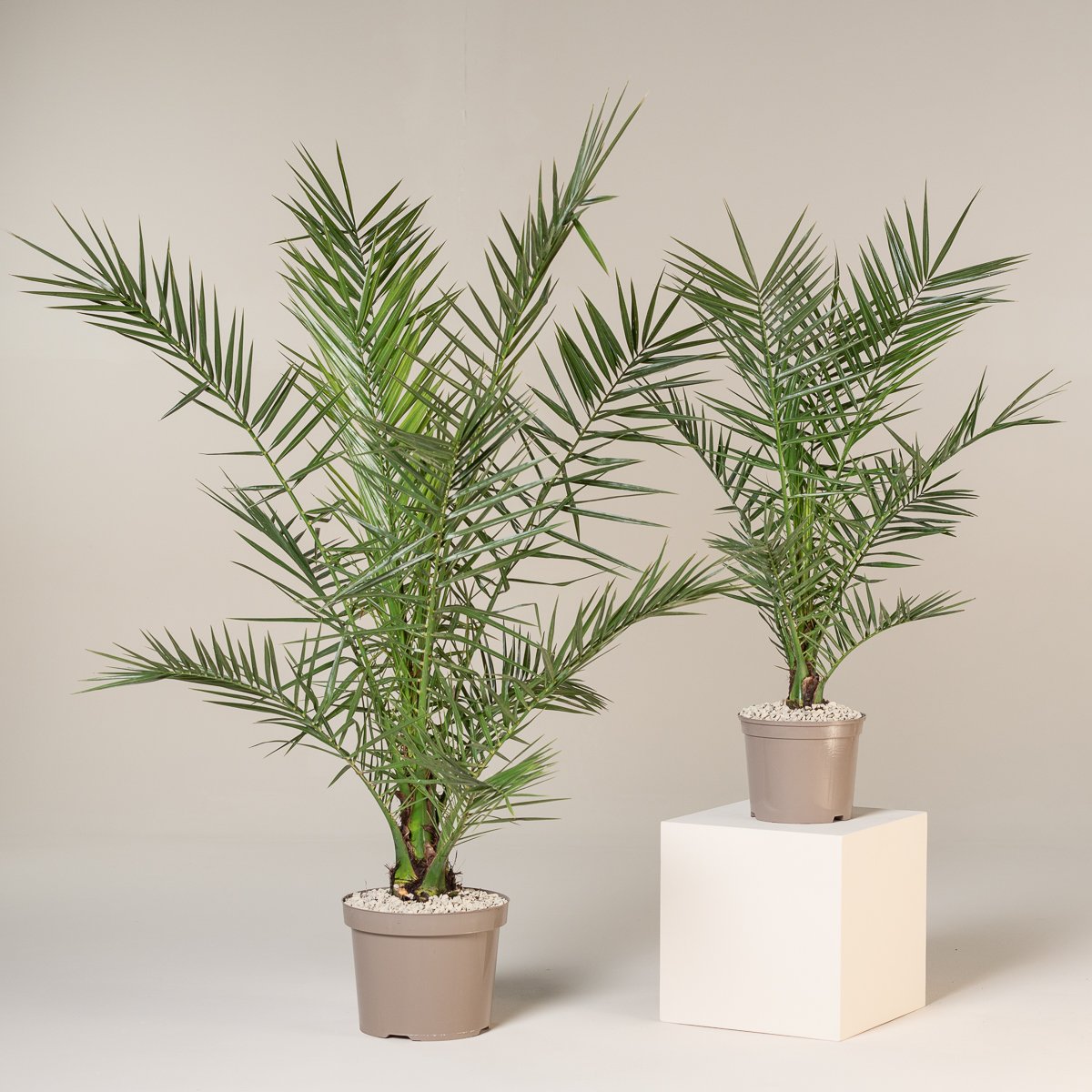
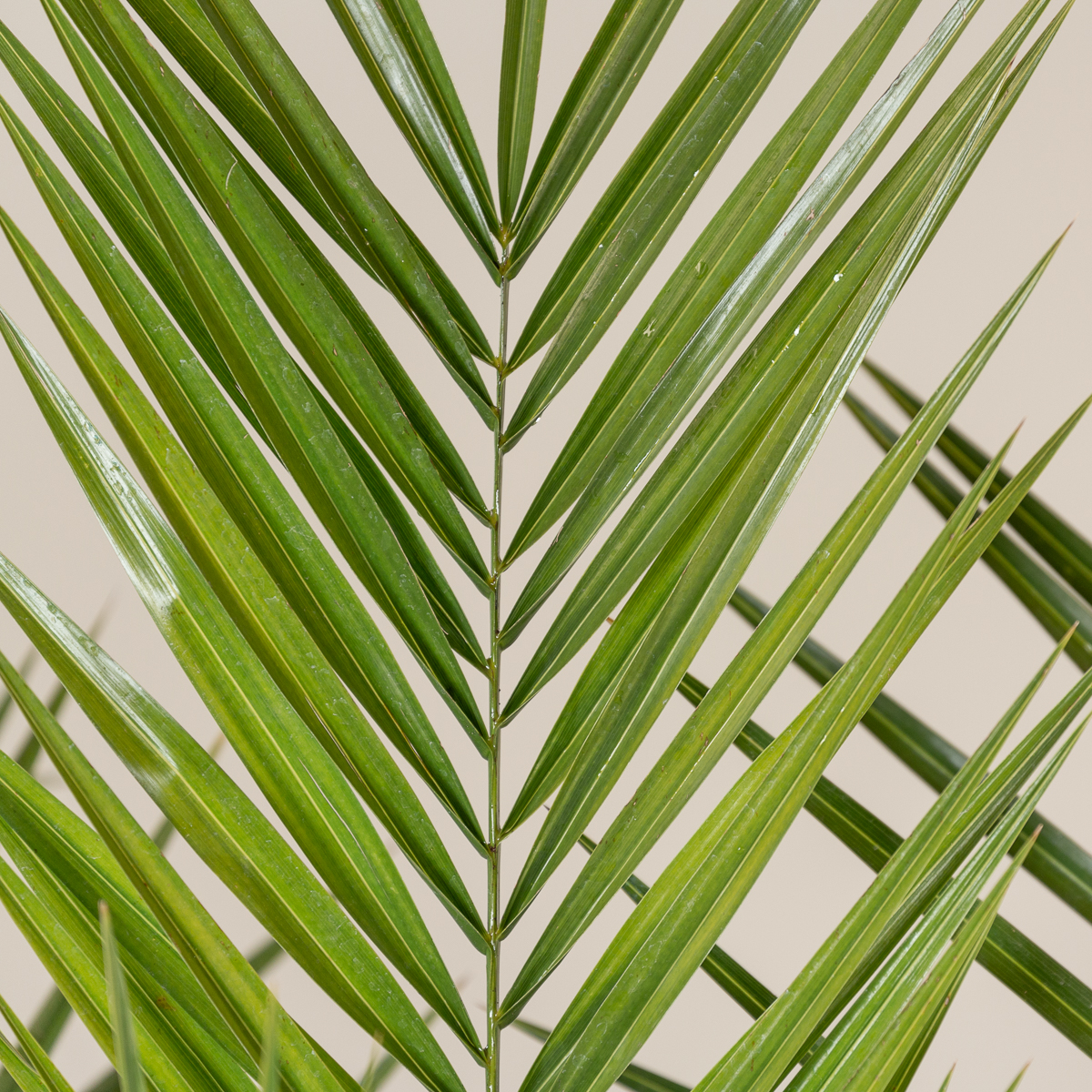
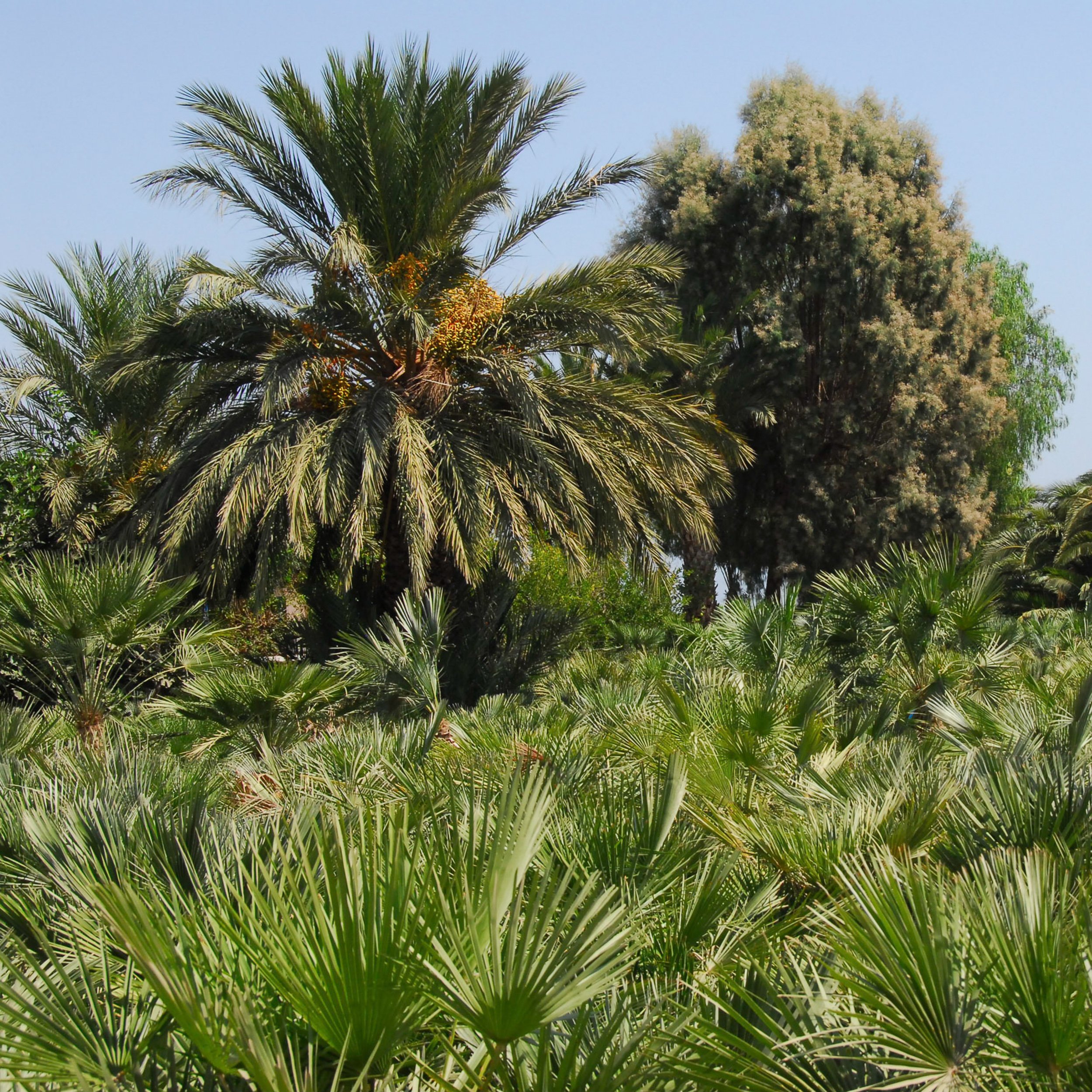
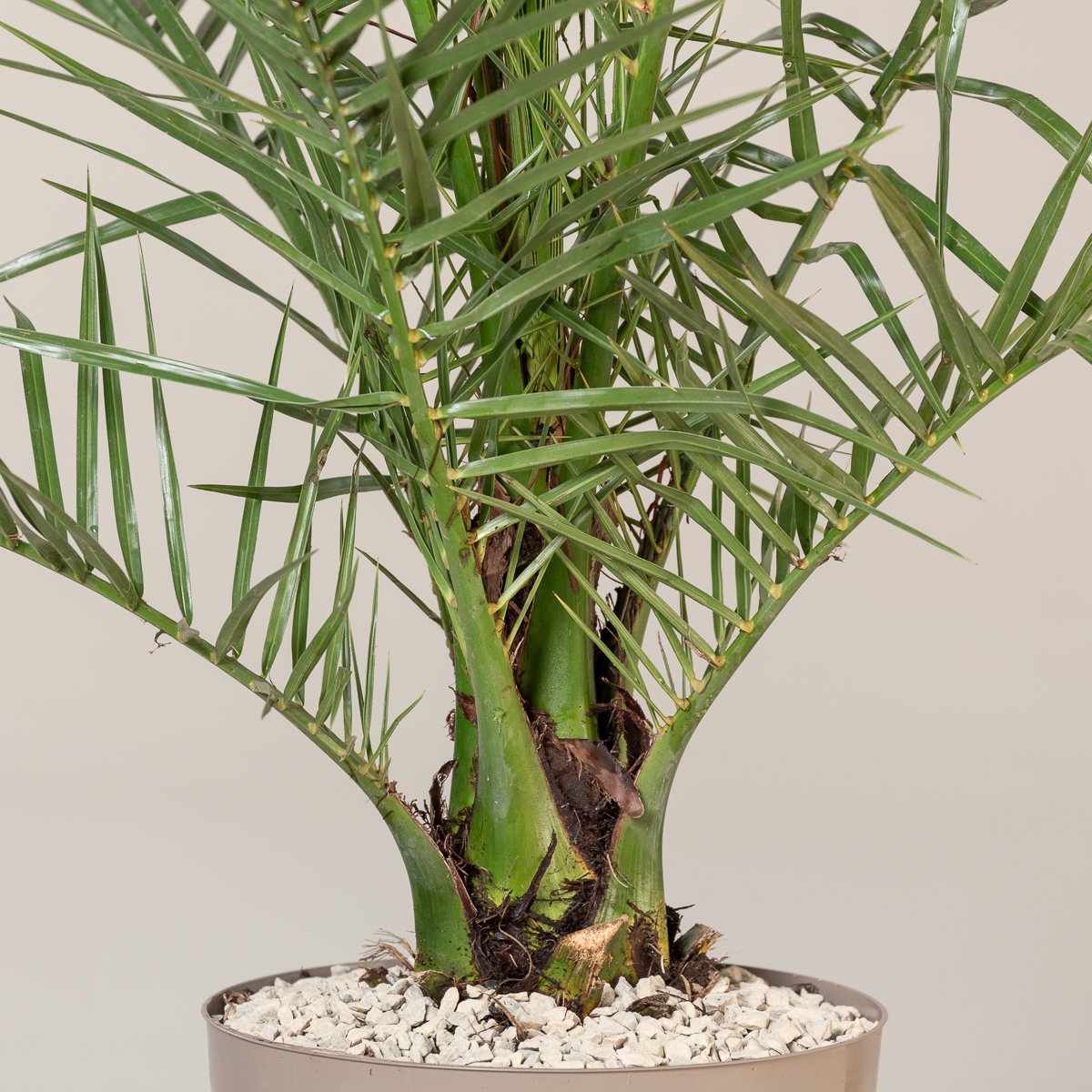
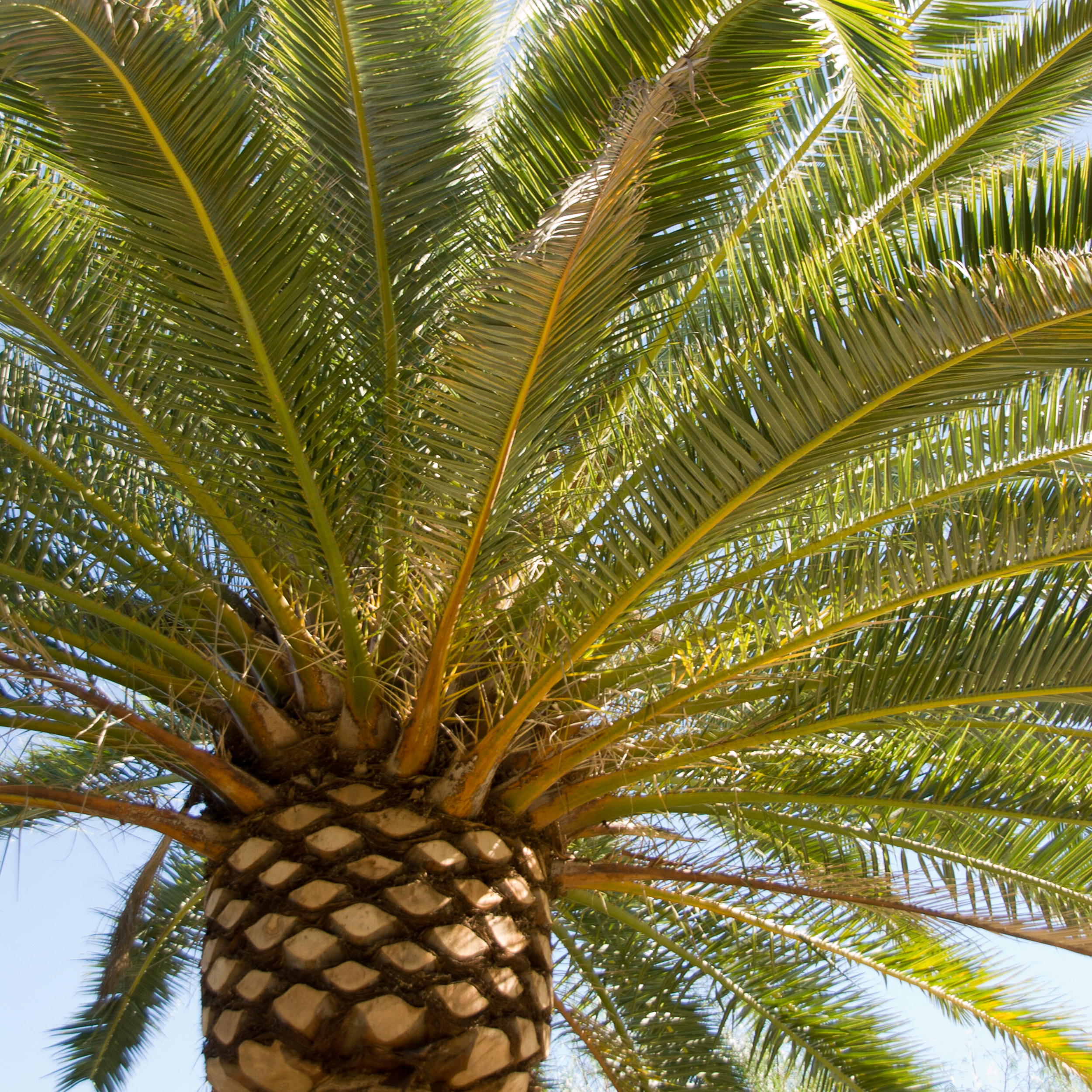
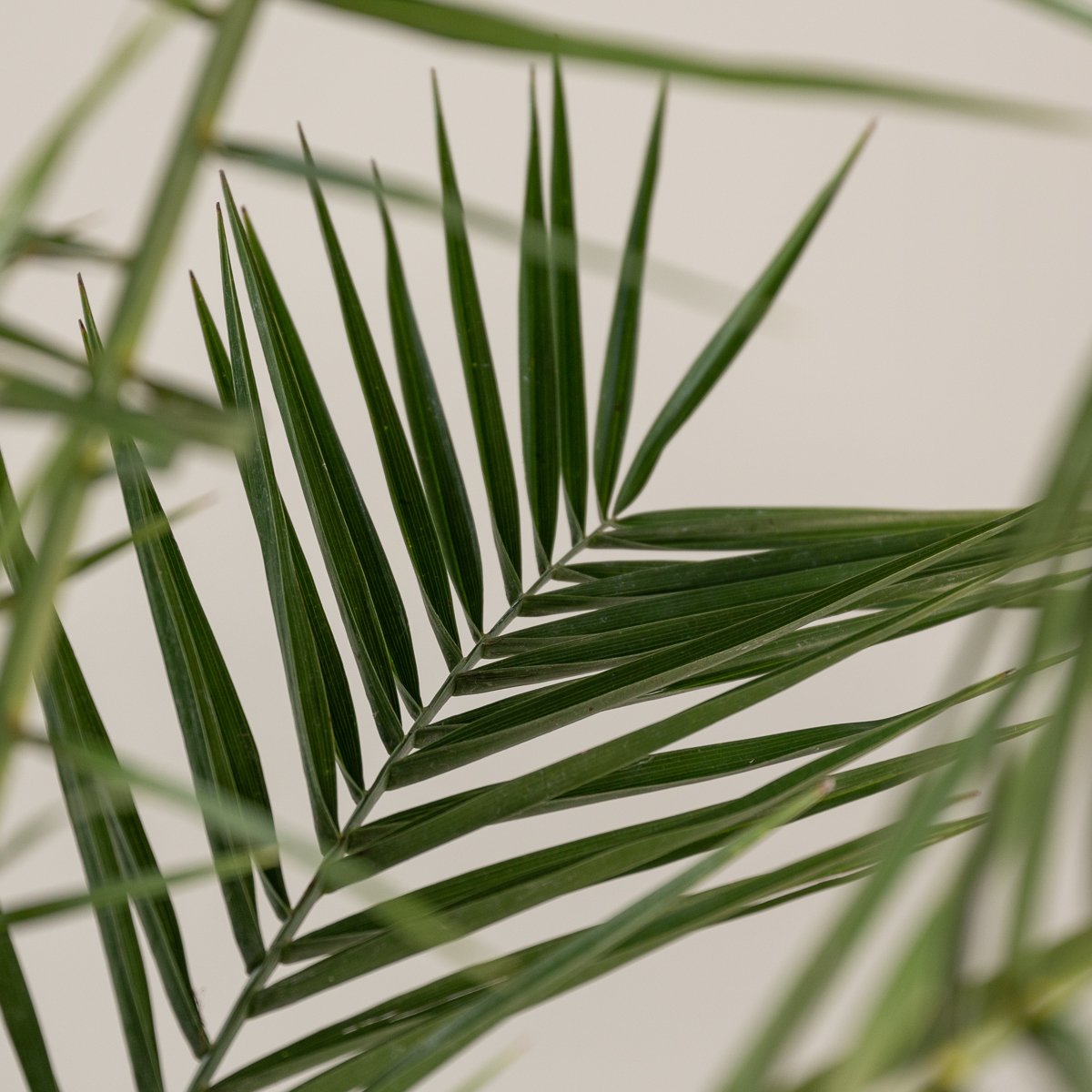
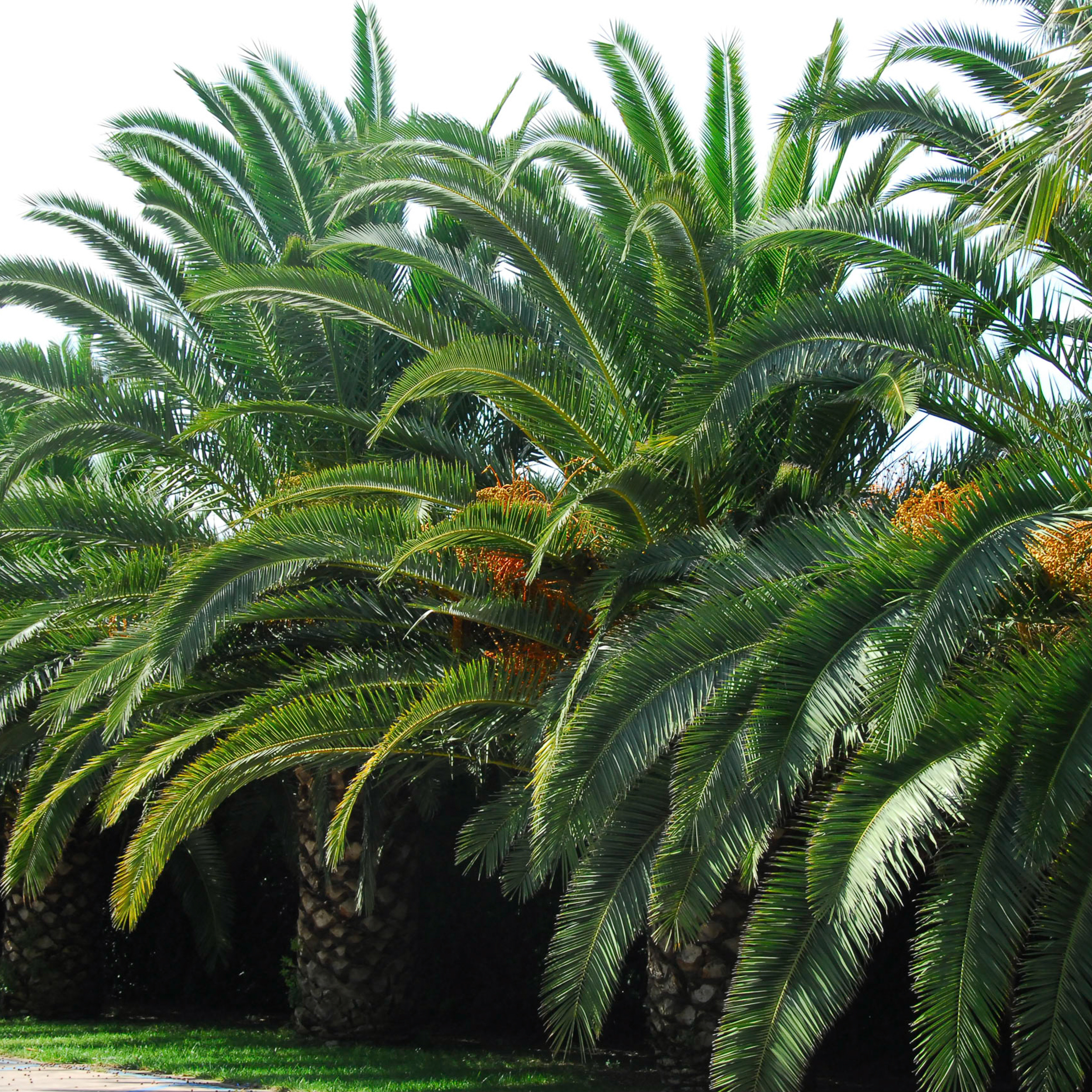
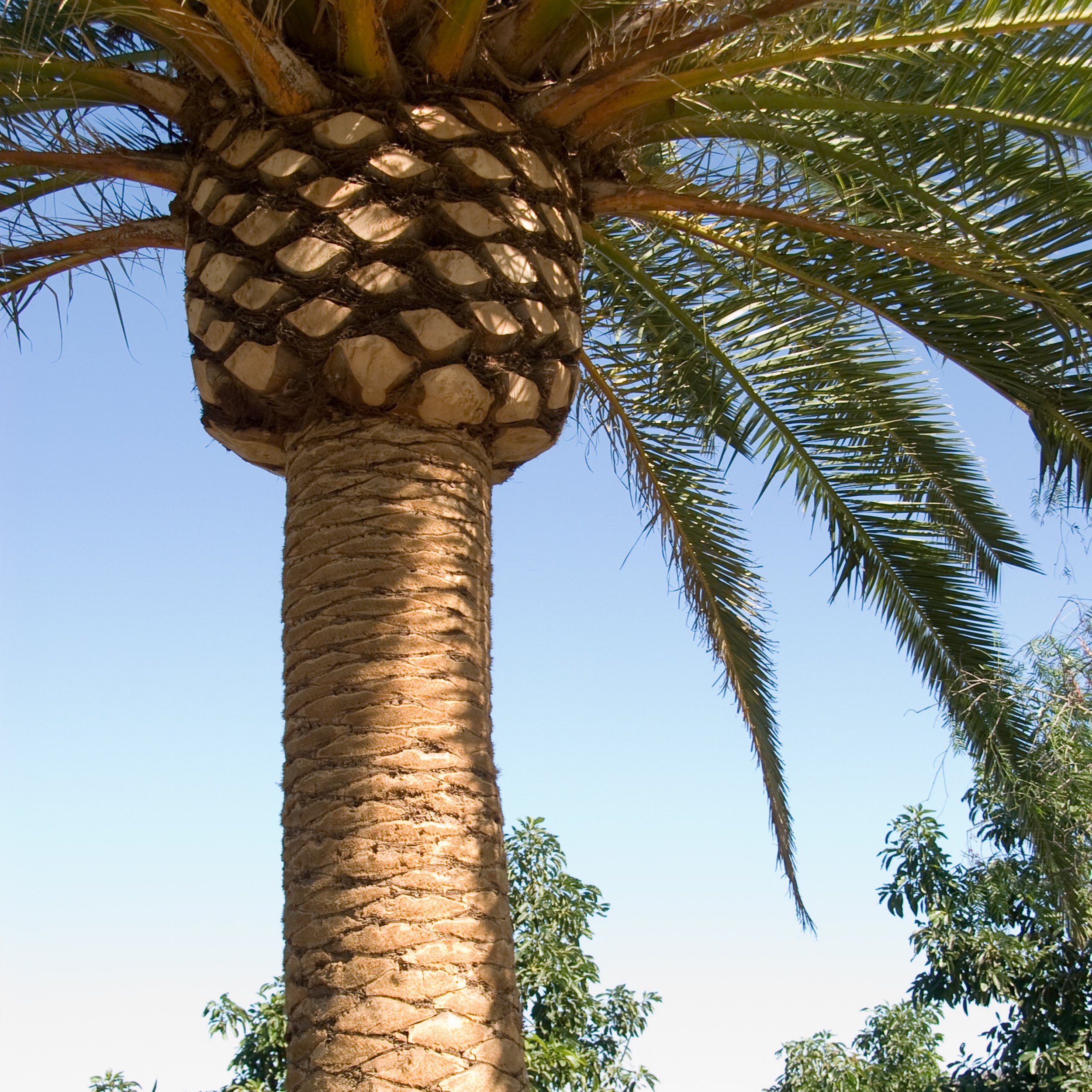
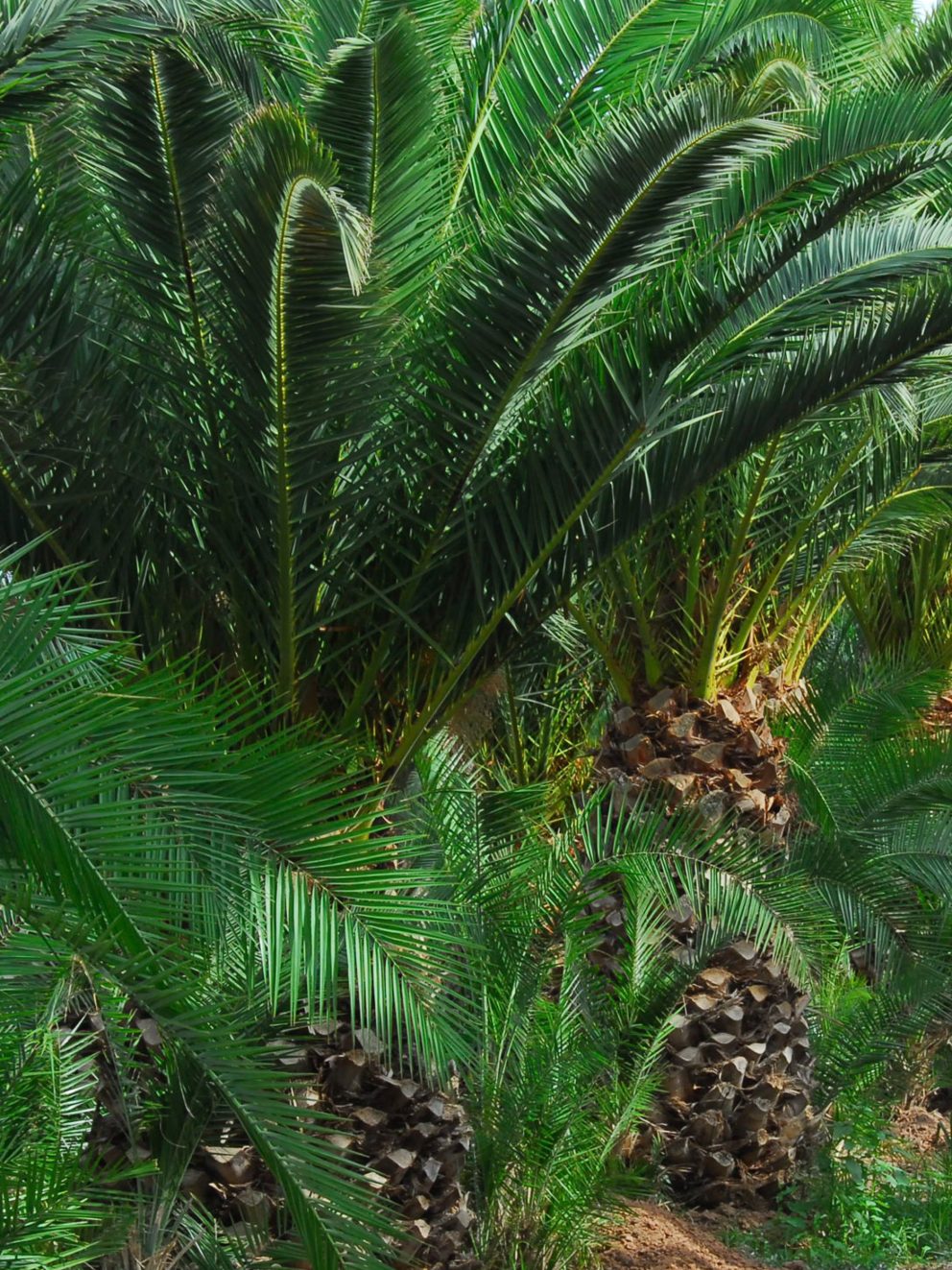
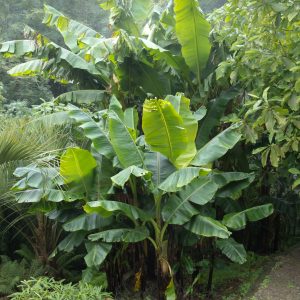
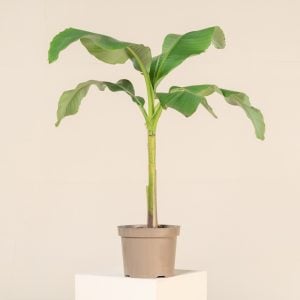
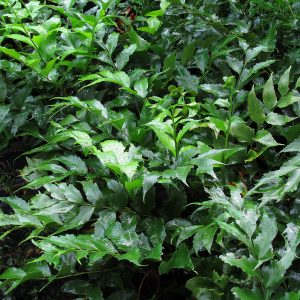
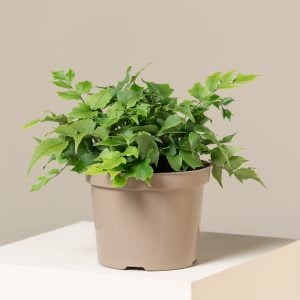
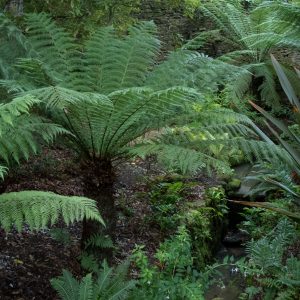

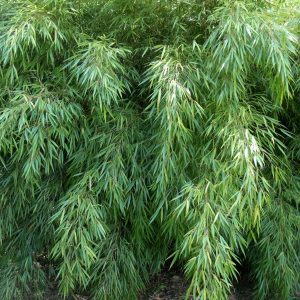
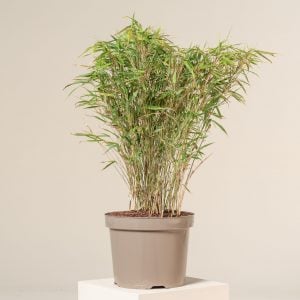
Bought this new plant I was impressed with the speed of delivery and when opened was amazed and very pleased at the size and quality. Looks fantastic in my garden.may have to come back for more
David Fletcher –
really pleased…. great palm ….bigger than i thought and really healthy looking ….. will definately buy from palm centre again…. many thanks
Marky –
An excellent palm for a very sheltered garden. I have grown my Phoenix for the last ten years in my Norfolk garden with success. This is mainly due to having very good drainage and wrapping the palm with fleece from late November till March. Make sure you protect the growing point with fleece also which works with other palms like Butia. The large specimen phoenix in Norwich have come through the winter of 2010, although they lost most of their outer leaves have now recovered.
Stephen J Oakley –
My attempt to grow this palm outside in Hampshire failed, and I think this was mainly to do with the winter wet as the central growing point simply rotted after 2 winters. Nonetheless I now grow several specimens in pots, moving them outside for the summer and overwintering in a cool greenhouse where they have comfortably survived -2c when fairly dry. A very exotic looking palm, albeit very spiky, I am considering trying to plant these specimens outside again and find some way of sheltering them
James Barnet –